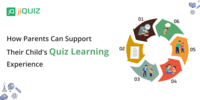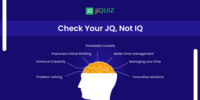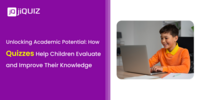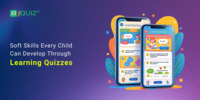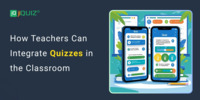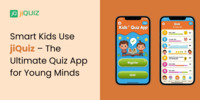- Oct 08, 2025
- Quiz Tips
- 591
Share this post on:
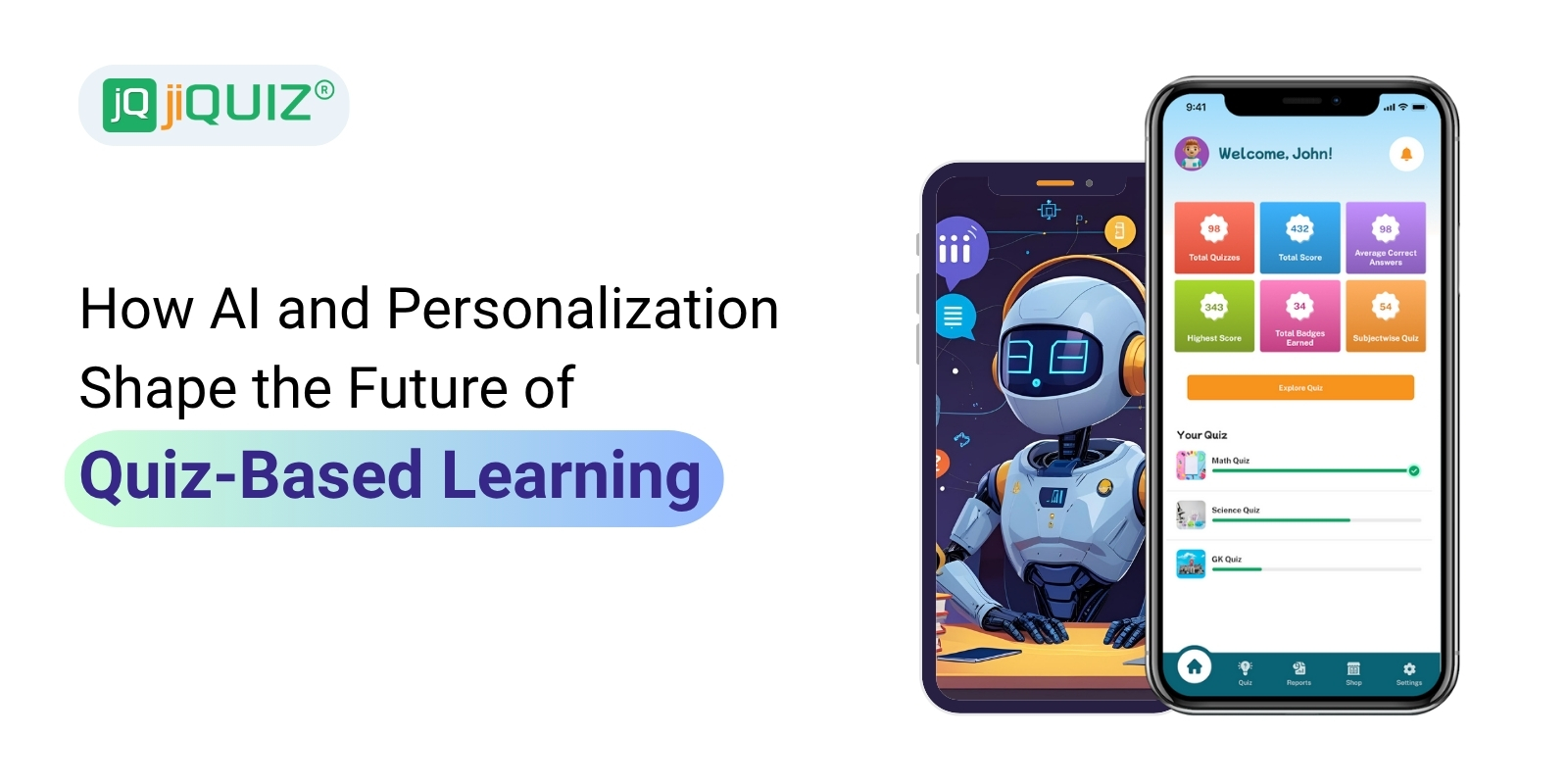
For years, quizzes have been a staple in education, training, and even entertainment. From pop quizzes in classrooms to personality tests online, they're a familiar and often engaging way to assess knowledge and provide feedback. But the landscape of quiz-based learning is undergoing a radical transformation, driven by the twin forces of Artificial Intelligence (AI) and personalization. Gone are the days of one-size-fits-all quizzes; the future is about dynamically adapting to individual learners, predicting their needs, and creating truly impactful learning experiences. This blog post explores how AI and personalization are revolutionizing quiz-based learning, delving into current applications, future possibilities, and the benefits for learners and educators alike.
The Limitations of Traditional Quiz-Based Learning
Before diving into the exciting future, it's important to understand the shortcomings of traditional quiz-based learning. While quizzes have value, they often fall short due to:
- Lack of Adaptability: Traditional quizzes are typically static. Everyone takes the same questions, regardless of their existing knowledge or learning pace. This can lead to frustration for advanced learners and overwhelm for those who need more support.
- Limited Feedback: Feedback is often simplistic – right or wrong, with little explanation as to why an answer is incorrect. This doesn't foster deep understanding.
- Passive Learning: Many quizzes are simply assessments, lacking the interactive element that promotes active learning.
- Time-Consuming Assessment: Manually grading quizzes and providing individualized feedback can be a significant burden for educators.
- Limited Scope: Quizzes often focus on factual recall rather than higher-order thinking skills.
These limitations highlight the need for a more intelligent and personalized approach. This is where AI and personalization enter the picture.
AI's Role in Transforming Quiz-Based Learning: Current Applications
AI isn't about robots replacing teachers; it's about augmenting their abilities and creating better learning tools. Here's how AI is already being applied in quiz-based learning:
- Adaptive Testing: This is perhaps the most significant current application. Adaptive testing platforms adjust the difficulty of questions based on a learner's performance. If a learner answers correctly, the next question is more challenging. If they struggle, the questions become easier. This ensures that learners are constantly challenged at their optimal level, maximizing engagement and knowledge retention. Examples include platforms used in standardized testing and corporate training.
- Automated Question Generation: AI can analyze learning materials – textbooks, articles, videos – and automatically generate quiz questions. This significantly reduces the workload for educators and content creators, ensuring a constant supply of fresh and relevant assessments. Natural Language Processing (NLP) plays a key role in this process.
- Intelligent Feedback & Remediation: AI can provide more detailed and personalized feedback than traditional grading. It can pinpoint specific areas of weakness, suggest relevant learning resources (videos, articles, practice problems), and even explain why an answer is incorrect. This goes beyond simply saying "wrong"; it provides a roadmap for improvement.
- Content Tagging and Recommendation: AI algorithms can analyze quiz questions and learning content, tagging them with specific skills, knowledge areas, and difficulty levels. This allows platforms to recommend personalized learning paths, suggesting quizzes and content tailored to individual needs and goals.
- Sentiment Analysis & Learner Engagement: AI can analyze learner responses and behaviors (time spent on questions, frustration indicators) to gauge their emotional state and engagement levels. This information can be used to adjust the difficulty, pacing, or format of the quiz to maintain learner interest.
- Chatbots for Support: AI-powered chatbots can provide instant support to learners, answering questions about quiz content, providing hints, and offering encouragement. This provides a readily available resource for those who need extra help.
Personalization: Going Beyond Adaptive Testing
While adaptive testing is a core component, personalization in quiz-based learning extends far beyond adjusting difficulty. It's about crafting a holistic learning experience that caters to individual preferences, learning styles, and goals.
- Learning Style Accommodation: AI can analyze learner interactions to identify their preferred learning styles (visual, auditory, kinesthetic). Quizzes can then be adapted to incorporate more visual aids for visual learners, audio explanations for auditory learners, or interactive simulations for kinesthetic learners.
- Goal-Oriented Learning Paths: Learners often have specific goals – mastering a particular skill, preparing for a certification exam, or simply expanding their knowledge. AI can create personalized learning paths that align with these goals, recommending relevant quizzes and content.
- Content Formatting Preferences: Some learners prefer concise explanations, while others appreciate more detailed explanations. AI can adapt the format of quiz content to match individual preferences.
- Gamification and Motivation: Personalization can also involve tailoring the gamification elements of a quiz (points, badges, leaderboards) to individual motivations.
- Microlearning Integration: Breaking down learning content into smaller, manageable chunks (microlearning) is highly effective. AI can personalize the sequence and timing of these microlearning modules within a quiz-based learning environment.
The Future of AI and Personalization in Quiz-Based Learning: Emerging Trends
The current applications are just the tip of the iceberg. Here are some exciting emerging trends:
- AI-Powered Content Creation: We're moving beyond simply generating multiple-choice questions. AI will be able to create entire interactive scenarios, simulations, and even virtual reality experiences, seamlessly integrated into quiz-based learning.
- Predictive Learning Analytics: AI will analyze learner data to predict areas where they are likely to struggle, allowing educators to proactively intervene and provide support before they fall behind.
- Emotional AI and Adaptive Feedback: Emotional AI will be able to detect subtle emotional cues (frustration, boredom, confusion) and adjust the quiz experience in real-time. Feedback will become even more empathetic and personalized.
- Integration with Metaverse & Immersive Learning: Imagine taking a quiz within a virtual environment, interacting with 3D models, and receiving personalized feedback from an AI tutor. This is the potential of integrating quiz-based learning with the metaverse.
- Blockchain for Secure & Transparent Assessment: Blockchain technology can be used to create secure and transparent records of learner performance, ensuring the integrity of assessments and enabling portable learning credentials.
- AI-Driven Curriculum Design: AI will assist educators in designing entire curricula, identifying knowledge gaps, and creating aligned assessments.
Benefits for Learners and Educators
The integration of AI and personalization in quiz-based learning offers significant benefits for both learners and educators:
For Learners:
- Increased Engagement: Personalized quizzes are more engaging and motivating.
- Improved Knowledge Retention: Adaptive learning ensures that learners are challenged at their optimal level, maximizing knowledge retention.
- Faster Learning: Personalized learning paths accelerate the learning process.
- Increased Confidence: Targeted feedback and support boost learner confidence.
- Greater Flexibility: Learners can learn at their own pace and on their own schedule.
For Educators:
- Reduced Workload: AI automates many time-consuming tasks, freeing up educators to focus on teaching and mentoring.
- Improved Assessment Accuracy: AI provides more accurate and granular assessment data.
- Enhanced Student Insights: Educators gain valuable insights into student learning patterns and needs.
- Personalized Instruction: Educators can tailor their instruction to meet individual student needs.
- Data-Driven Curriculum Improvement: Assessment data informs curriculum design and improvement.
Challenges and ConsiderationsHow Quiz Apps Can Help Kids Discover Their Strengths Early On
While the future of AI and personalized quiz-based learning is bright, there are challenges to overcome:
- Data Privacy & Security: Collecting and analyzing learner data raises concerns about privacy and security. Robust data governance policies are essential.
- Algorithmic Bias: AI algorithms can perpetuate existing biases if not carefully designed and monitored.
- Accessibility: Personalized learning platforms must be accessible to all learners, including those with disabilities.
- Cost of Implementation: Implementing AI-powered learning platforms can be expensive, particularly for smaller institutions.
- Teacher Training: Educators need training on how to effectively use AI-powered learning tools.
Conclusion: A Personalized Learning Revolution
AI and personalization are not just trends; they represent a fundamental shift in the way we approach learning. Quiz-based learning is evolving from a static assessment tool to a dynamic, engaging, and personalized learning experience. By embracing these technologies, we can unlock the full potential of every learner and create a more effective and equitable education system. The future of quiz-based learning is bright, promising a personalized learning revolution that empowers learners and transforms the way we learn.

